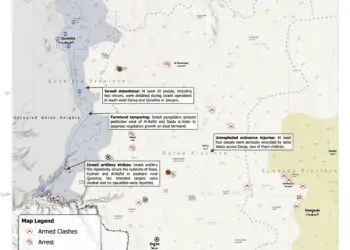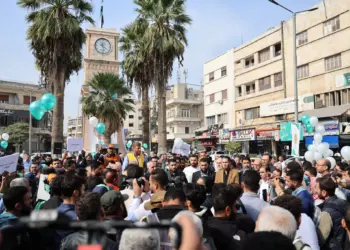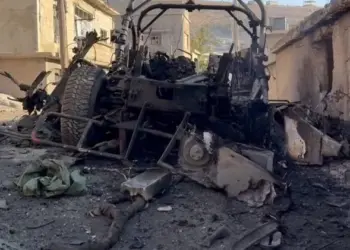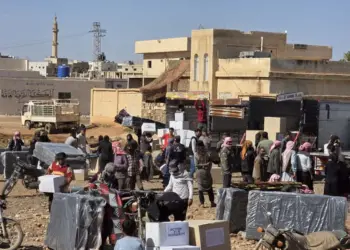The Suwayda crisis has laid bare the dangers of militarised governance, exclusionary politics, and top-down transition models. Without a fundamental step-change in how governance operates, one that centres inclusion and civilian authority, these dynamics will continue to erode Syria’s social fabric and fuel further instability. It is urgent to course-correct now, and the international community has a crucial role to play in ensuring that shift moves toward genuinely inclusive governance. The violence in Suwayda risks catalysing broader destabilisation if left unaddressed, and demand a shift away from elite-driven, coercive models of governance toward inclusive, community-rooted approaches that prioritise inclusivity, local agency, and accountability.
Against coercive consolidation
The escalation in Suwayda highlights the dangers of supporting a transition shaped by coercive consolidation, exclusionary governance, and sectarian violence. The interim authorities’ use of authoritarian tactics mirrors Assad-era statecraft. Their latest dual-track diplomacy around the ceasefire continues to rely on sectarian militias and hybrid security forces, underscoring the urgent need to challenge their coercive consolidation of power. International engagement must not reward authoritarian mimicry cloaked in transitional rhetoric. Backing such frameworks risks fuelling renewed cycles of violence and displacement.
Even before the recent bouts of sectarian clashes between Suwayda’s Druze and other factions, local perspectives have underscored the need for de facto security and military autonomy in Suwayda. This includes maintaining only nominal links to the Ministry of Interior, while fully excluding the General Security Directorate, widely seen as a militarised intervention force that incorporates former ISIS elements and poses a direct threat to local stability.
Moving forward, authorities must establish a truly independent, international investigation committee to examine the incidents, with a clear mandate and access to all affected areas. As opposed to the committee that recently concluded its investigation on the March coastal massacres, this body should commit itself to transparency at all stages of the investigation. This includes regular public updates and access.
Toward legitimacy & inclusivity
Suwayda’s resistance to externally imposed authority reflects deeper legitimacy fractures. The Shara’a government’s centralising, sectarian, and militarised approach has alienated communities across Syria. The crisis has sent a negative message to Syrians elsewhere and to the international community, eroding confidence in Damascus’s ability to provide security, justice, or inclusive governance. The Druze leadership’s rejection of the return of state institutions under the current deal highlights the breakdown in trust and the failure of top-down reintegration efforts. Independent investigations into violations and the exclusion of implicated actors from positions of authority must precede any process of re-establishing governance.
Suwayda’s demand for decentralised governance and local control over local security stems, to some extent, from its historical autonomy, at least since 2023, and the failure of centralised rule under the Assad regime earlier and now under interim authorities. The ceasefire’s third clause—return of state institutions—is being resisted precisely because it threatens to override emergent local governance structures without addressing legitimacy or power-sharing. Support should instead be redirected toward empowering community-led governance that is accountable to residents, rather than centralised security actors.
Moving forward, the interim authorities in Damascus should adopt genuine, inclusive governance reforms by involving representatives from all political backgrounds. This is essential to restoring trust in these authorities both throughout Syria and among the international community. Damascus must be open to restoring democratic local governance models by supporting a locally elected civil authority. Composed of representatives from local communities, this body would coordinate with authorities on service provision. This would help gradually rebuild trust and reduce the influence of religious, tribal, and military leaders on all sides.





